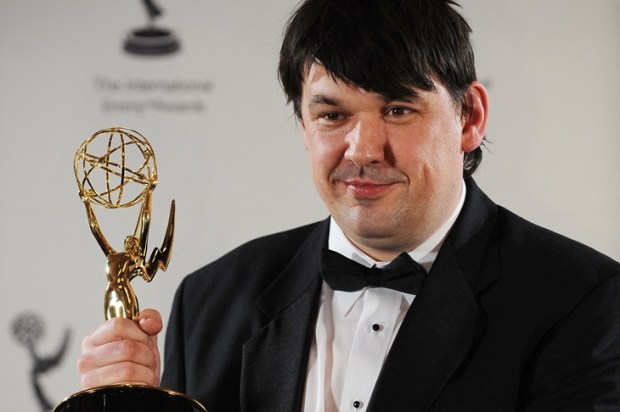No matter the outcome of tomorrow’s same-sex marriage postal vote, conservatives should not accept the outcome.
In the parlance of public policy, the consideration and public debate on whether to allow same-sex marriage in Australia has been grossly flawed and mismanaged.
With any major reform to public policy, good government and experienced public policy practitioners typically seek to guide the reform effort through a robust policy development process.
Such a process often entails a thorough review of the issues under consideration, an articulation of the problem, canvassing and carefully considering all relevant policy options, anticipating any potential unintended consequences and then the selection of the option which best provides the largest net positive benefit to society.
This fundamental process to delivering robust public policy outcomes has been all but absent in the Australian SSM debate.
The lack of a robust process and independent dispassionate consideration of all available evidence exposes Australia to potentially disastrous outcomes which comes with tinkering with a religious and social institution which has served as the bedrock for at least 5,500 years to societal stability and humanity’s progress.
Instead, arguments relating to homosexuality being a naturally occurring phenomenon as well as ideological pleas to fairness, love and compassion have dominated the debate by those advocating for change.
Any proper policy reform process on such a fundamental question that carries potential societal‑wide and intergenerational impacts should have encompassed an independently prepared first principles review policy paper canvassing several foundational questions including:
- What is the institution of marriage and why does it exist? (Is the institution to bond two people’s love or is it an institution to facilitate procreation and the upbringing of children)
- How does the institution of marriage differ across different societies around the world?
- What public and private outcomes does the institution intend to achieve?
- Who originally created the institution? (Was it religions or ancient governments that created the institution?) Who rightfully can claim ownership to the institution today?
- What has the Government’s historical role in the institution of marriage been? Who has dictated what marriage is and who can marry?
- When, and under what conditions, has marriage been most effective in delivering public outcomes?
- What historical attempts have been enacted to reform or change the institution of marriage and have they been successful?
- What difference is there between theologically-recognised and government-recognised marriage?
- What ongoing role does and should the Commonwealth government have in regulating marriage?
- What is the history of the SSM movement? Who funded the movement and what are their objectives? How has the movement been able to influence the perception of SSM over recent decades?
- What societal or intergenerational impacts are expected from the introduction of SSM in Australia?
- What data and empirical studies exist which may provide an evidence base to understanding any potential long-run effects from the introduction of same-sex marriage?
A proper consideration of these and other critical questions would have allowed policymakers and citizens to make a well-informed decision.
For those advocates of evidence-based policy, the absence of a proper public policy process, a well‑articulated evidence base justifying the reform and any longitudinal data where SSM has been implemented to fully comprehend potential inter‑generational ramifications means that the current (and expensive) process is fundamentally flawed.
The postal survey process has left many Australians to cast (whether for or against) a largely ill‑considered opinion.
To her credit, former leader of the Greens, Christine Milne, was correct when she stated in 2013 in the Senate that Australian community attitudes have changed regarding same-sex relationships and marriage over the past 30 years.
However, no one in the national debate has ever bothered to ask why this dramatic shift in social attitudes ever occurred.
There can be no question that an internationally integrated multi-dimensional and coordinated campaign has been pursued throughout the western world featuring Hollywood created or inspired cultural products (television shows, movies and music) comprising of regularly featured gay characters as well as gay intimacy and sexual activity, educational messaging throughout primary and secondary schools, academically driven advocacy from university arts faculties as well as political and mainstream media advocacy.
These elements have been the catalyst for the ‘normalisation’ of attitudes relating to homosexuality and same-sex relationships.
This integrated process, according to former KGB agent Yuri Bezmenov, is referred to as ‘ideological subversion’ and was used extensively by the Soviets for nefarious geopolitical strategic reasons and now appears to be a predominant technique in the western world.
Such an approach, while legal, does not provide any deductive rational evidential basis for the consideration of public policy reform proposals.
This means that the Milne rationale as the basis for why SSM reform should occur carries no legitimacy.
A majority Yes vote in the postal vote tomorrow should not be seen as the end of the matter.
Without a robust evidence base or longitudinal data, conservatives and independent social scientists will need to examine the long run impact of any amendments to marriage customs in Australia as well as other comparable countries.
Similar to understanding the impact of immigration flows or other major public policy reforms, the effects of the introduction of SSM customs are unlikely to be felt short-term and are likely to be generational.
Any evidence which emerges that changes to Australian marriage customs lead to a net negative for Australian society should be the basis for the issue to be publicly re-examined.
Moreover, scientific research into why homosexuality exists is continuing to evolve. Recent peer-reviewed scientific research of identical twins who share identical DNA material but have different sexual preferences have proven categorically false the proposition that people are born gay.
This body of research has proven that homosexuality arises from post-birth factors which may include post-birth DNA mutation (or epigenetics) or other environmental (or nurture) factors.
Indeed, the emerging science explains how homosexuality was publicly encouraged in ancient Greece as a policy tool to enhance the fighting effectiveness of Sparta’s military personnel.
Recent scientific discoveries mean that policymakers and society at large have a legitimate basis to question the virtuousness of homosexuality, what quantum of homosexuality activity is optimal for society and to potentially develop new public policy tools to either encourage or discourage homosexuality activity across society.
Australia will know tomorrow as to whether we will embark on the greatest social experiment in our history.
Conservatives who believe that this social experiment is likely to have negative and disastrous effects on Australian society should call, and start to prepare, for a new plebiscite no later than 2027.
If within the next 10-year period, evidence emerges that this experiment has led to a net negative outcome to Australia, then conservatives should seek to overturn any legislation which is passed by federal parliament this year.
The experience of a constitutional prohibition of alcohol in the United States between 1920 and 1933 proved that some social experiments can lead to disastrous public outcomes and that a community, on reflection, can reverse previous decisions.
John Adams is a former Coalition advisor.
Illustration: Twitter.
Got something to add? Join the discussion and comment below.
Got something to add? Join the discussion and comment below.
Get 10 issues for just $10
Subscribe to The Spectator Australia today for the next 10 magazine issues, plus full online access, for just $10.


























Comments
Don't miss out
Join the conversation with other Spectator Australia readers. Subscribe to leave a comment.
SUBSCRIBEAlready a subscriber? Log in